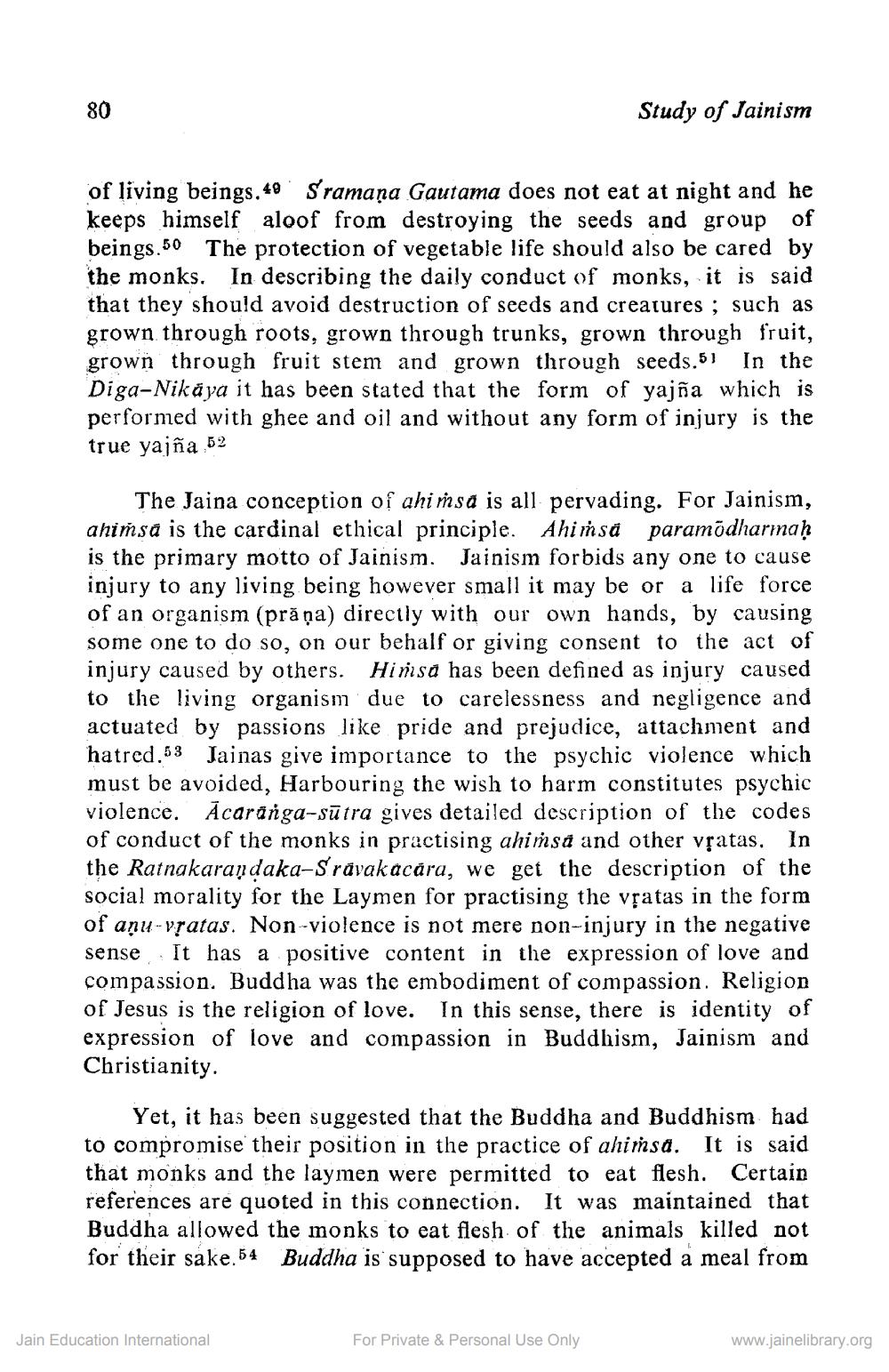________________
80
Study of Jainism
of living beings. 40. Sramaņa Gautama does not eat at night and he keeps himself aloof from destroying the seeds and group of beings.50 The protection of vegetable life should also be cared by
ks. In describing the daily conduct of monks, it is said that they should avoid destruction of seeds and creatures ; such as grown through roots, grown through trunks, grown through fruit, grown through fruit stem and grown through seeds.51 In the
ga-Nikaya it has been stated that the form of yajña which is performed with ghee and oil and without any form of injury is the true yajña 52
The Jaina conception of ahirsa is all pervading. For Jainism, ahiñsa is the cardinal ethical principle. Ahimsa paramodharmaḥ is the primary motto of Jainism, Jainism forbids any one to cause injury to any living being however small it may be or a life force of an organism (prăņa) directly with our own hands, by causing some one to do so, on our behalf or giving consent to the act of injury caused by others. Hirisa has been defined as injury caused to the living organism due to carelessness and negligence and actuated by passions like pride and prejudice, attachment and hatred.53 Jainas give importance to the psychic violence which must be avoided, Harbouring the wish to harm constitutes psychic violence. Acaränga-sūtra gives detailed description of the codes of conduct of the monks in practising ahimsa and other vșatas. In the Ratnakarandaka-Sravakacára, we get the description of the social morality for the Laymen for practising the vşatas in the form of aņu-vşatas. Non-violence is not mere non-injury in the negative sense It has a positive content in the expression of love and compassion. Buddha was the embodiment of compassion. Religion of Jesus is the religion of love. In this sense, there is identity of expression of love and compassion in Buddhism, Jainism and Christianity.
Yet, it has been suggested that the Buddha and Buddhism had to compromise their position in the practice of ahińså. It is said that monks and the laymen were permitted to eat flesh. Certain references are quoted in this connection. It was maintained that Buddha allowed the monks to eat flesh of the animals killed not for their sake.54 Buddha is supposed to have accepted a meal from
Jain Education International
For Private & Personal Use Only
www.jainelibrary.org




